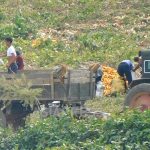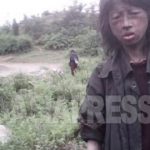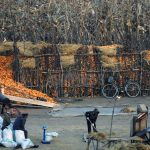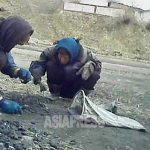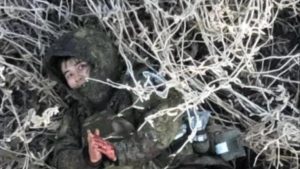
Every spring, we at ASIAPRESS get nervous. We worry that something bad will happen to the North Korean people during the “barley hump,” a period of food shortages. To find out what was happening in North Korea in the spring of 2024, ASIAPRESS held two phone interviews with a woman in Ryanggang Province in late April. (JEON Sung-jun / KANG Ji-won)
◆Many people died during the barley hump in 2023
The interviewee was a woman raising children in Ryanggang Province. Before COVID, she owned her own business selling Chinese products, but the authorities made it impossible to do business and she closed her shop. She used a Chinese cell phone during the interviews. The woman stopped the call every few minutes and resumed it after a period of time to avoid detection or eavesdropping by the North Korean authorities.
―― We heard that things were pretty bad in North Korea during COVID. Please tell us about your experience.
"More people died during the lockdown than those who died from COVID because they ran out of money and couldn't make any. That led many people to die during the barley hump last year (2023)."
* Barley hump: A period stretching from May to June when the food from the previous year's farming has run out and the barley has not yet been harvested.
―― What percentage do you think died in the area you live?
"I don't know what percentage, but I think in May of last year alone, three or four people died in a typical neighborhood. The government just focused on controlling everyone and didn't give anyone anything to eat, so the ones that survived were lucky. There's a lot of people who are barely eating a meal a day right now, and there's a lot of people suffering from edema because they can't eat.
◆The government’s measures to control the population have caused the poor economic situation
―― Who do you think was most affected?
"Last year, they didn't (operate) the state-run grain stores properly, and they cut off distribution, so people who were poor suddenly had nothing to eat after they had eaten everything they had. This led to malnutrition, and they died of simple diseases like diarrhea and colds.
To be honest, I think the old people are almost all dead (a lot of people are dead). It was bad here too, but in places like Gilju, Kimchaek, and Hamhung, two or three people a day died in their apartments, I heard. The government was in a hurry, too, so it released military rice stores and war supplies to supply them with food for about a week."
* State-run grain stores: The Kim regime has been tightly controlling food distribution in the market since around 2019 and has reorganized it to allow the purchase of staple foods such as rice and corn only through this market.
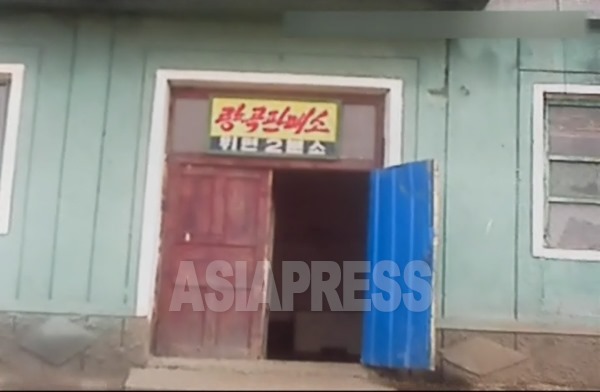
◆The situation is different from the Arduous March period
―― Can you tell us a little bit more about what it's like now?
"It's hard for the average working person now, and there's nothing you can do about it. People just go around looking for work (day labor) from each other, and if they're lucky enough to get a job, they get a meal or two....
During the Arduous March period, people who didn't know how to be self-sufficient died, but now everyone's facing difficulties.... Only the cadres live, the rest of us are all suffering. Families without anyone to work, those who live alone, and those who have sick family members are all living like the homeless. They have nothing to eat, so they sold all the plows in the house and now have nothing. There are many families suffering that way."
* "Plows" refer to household items such as TVs, refrigerators, and fans.
―― Has anyone actually starved to death in your neighborhood recently, and are the authorities doing anything about it?
"Yesterday, an old man died in my neighborhood, and when I went to his house after he died, I found that he didn't even have a spoonful of salt. The authorities say that they have to take measures for households in need, but all they need to do is give these people food. A few days ago, they gave out a kilogram of corn noodles to households in need, but how many days can you live on that?"
(To 2 >>>)
※ ASIAPRESS communicates with its reporting partners through Chinese cell phones smuggled into North Korea.
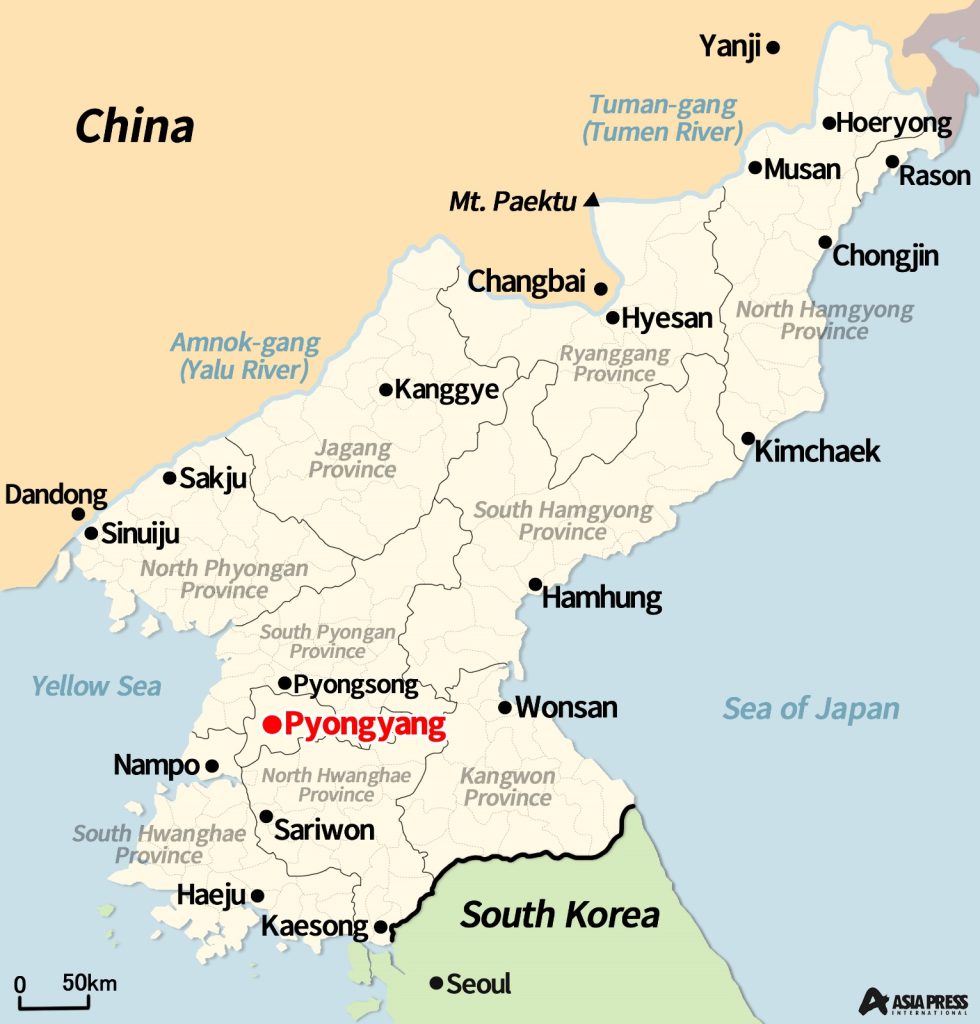
- <Inside N. Korea> Regime hands out rice to rural food-short households, “Pay back in the fall with 30% interest”
- <Inside N. Korea>State-led smuggling resumes in the Yalu River, sends seafood and copper ore to China, bringing in UN-sanctioned goods like cars and machinery
- <Inside N. Korea>Blindsided by information blockade...Unprecedented surveillance as defectors' families considered chief drivers of flow of outside information
- <Inside N. Korea>Recruitment for the world's longest military service(1) This year 8 years for men, 5 years for women
- <Investigation>Why aren’t North Korea’s women having babies anymore? (1) The fertility rate is already severely low…It’s rare to see anyone carrying babies around

